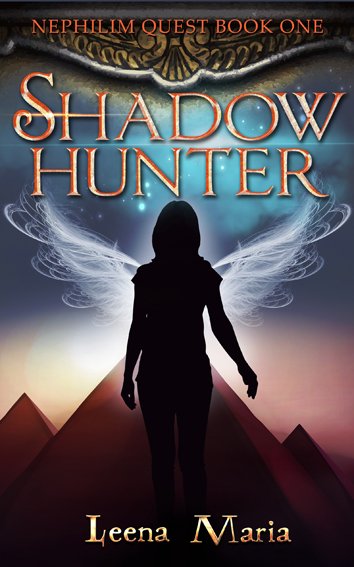|
"Very well then. So the book tells us that there is a buffer zone between our physical world and the Unseen Worlds, where time does not exist for anyone who gets there. Does this sound believable to you?" "Well… not really. I mean I suppose we would know about it." "And indeed we have known about it, always," the professor beamed as if I had been a good student and given the right answer. "There are so many stories in which someone falls asleep and wakes up years later – time has passed and they enter a changed world when they awaken. You must have heard some of them. These narratives have their roots in reality. One of the oldest is the story of HoniM’agel. He was a Jewish scholar, who according to the tale, fell asleep one day..." The professor switched to the historic present, as though he was seeing the story unfold in front of him. "Prior to falling asleep, he sees a man planting a carob tree, and asks him why he would do such a thing, when it was of no benefit to him. It would take 70 years for the tree to mature and carry fruit, and the man who planted it would be dead. When HoniM’agel awakens, he realizes he is under the very same carob tree, which has now fully matured. Big branches are reaching for the sky above him. Time has passed, and he discovers that he even has a grandson now." "I have never heard of HoniM’agel…" I admitted The music made an especially loud howling noise. I cringed. I would describe it as just like toothache in my back. Was I getting ill? Sounds didn’t have this effect on me normally… "Bronze singing bowls," the professor explained, "but moving on: have you ever heard of the seven wise men who fell asleep for two hundred years?" I vaguely remembered hearing something of the sort, and nodded. "The seven sleepers of Ephesus, as they were called. Early Christians, who hid in a cave and fell asleep for 200 years. This supposedly happened around the year 250 CE. Another old story is the legend of Ranka – a young Chinese man who ventured deep into a forest and met two old men playing a board game. He accepted some food from them and munched away on it while he watched their game. He dozed off and when he came to, he was alone. The axe handle he was holding had rotted, the axe head had fallen to the ground, and he had a long beard. He returned home and his family had disappeared and no one remembered him anymore." "Reminds me of Rip van Winkle," I said. "His story was fiction, but it was based on these folk legends," the professor dismissed Rip van Winkle with a wave of his hand, "and there are many more… Take for example the eighth-century Japanese story of Urashima Taro. As a young man he saved a tiny turtle that was tortured by children. He took it back to sea and would probably have forgotten all about the episode, if a huge turtle had not approached him the next day. "The big turtle told him that the little turtle had actually been Otohime, the daughter of the Emperor of the Sea. The Emperor wished to thank Urashima Taro, and the big turtle used his magical powers to give him gills. Then they swam to the bottom of the sea." Professor Rowan made a turtle swimming gesture with his hands. Once again he was there in his mind, you could tell. "He spends a few days there, but then wishes to return to his own village. The princess lets him go, but gives him a box as a departing gift, asking him not to open it. "When he gets back to the surface, everything in his village has changed, and when he asks if anyone remembers a man with his name, they do. They tell him a man with his name vanished at sea long ago. Three hundred years had passed since then. "He opens the box and - this is a fascinating bit - there are many variations as to what is in it. One version reveals that white smoke coming from the box turns him into an old man, and Otohime’s voice comes from the sea, telling him his old age was in the box. In another version he turns into a crane, in yet another he is given a magic pill that makes it possible for him to breathe underwater. " "Nice story…" I was trying hard to be polite, when in fact all these legends one after another were making my head spin. "Did you know they actually have a shrine in Japan, UrashimaJinja, where an old text tells of a man, Urashimako, who left in the year 478 to visit a land where people never die? He returned in the year 825, and he too carried a box with him. He opened this one, and again a cloud of white smoke came out and turned him into an old man." I opened my mouth to say something, but by now the professor was well into his lecture. "In Ireland a story of Oisin tells how he falls in love with beautiful Niamh, and together they ride to the land of the ever-young. After a while he begins to miss his family. Niamh lends him her horse, and warns him not to dismount. When he gets back home, three hundred years have passed, and everyone he knew is dead. Oisin falls from his horse and turns immediately into an old man." The professor, in his enthusiasm, began to pace the floor. "In the story of Muchukunda, in the Bhagavatam," he nodded over his glasses in my direction as if he expected me to know what the Bhagavatam was, "the king Muchukunda helps the gods to fight demons. In the divine realm almost no time passed, and he was told that one year in heaven equaled three hundred and sixty years." He stopped and turned towards me. "So you see – there are plenty of stories of people visiting a place where time does not pass. In many cases, after returning, they turn old in a matter of moments or days, often as a result of some magic falling apart. And here’s what’s true about these stories and how they relate to the Book of Gates…"
| 








